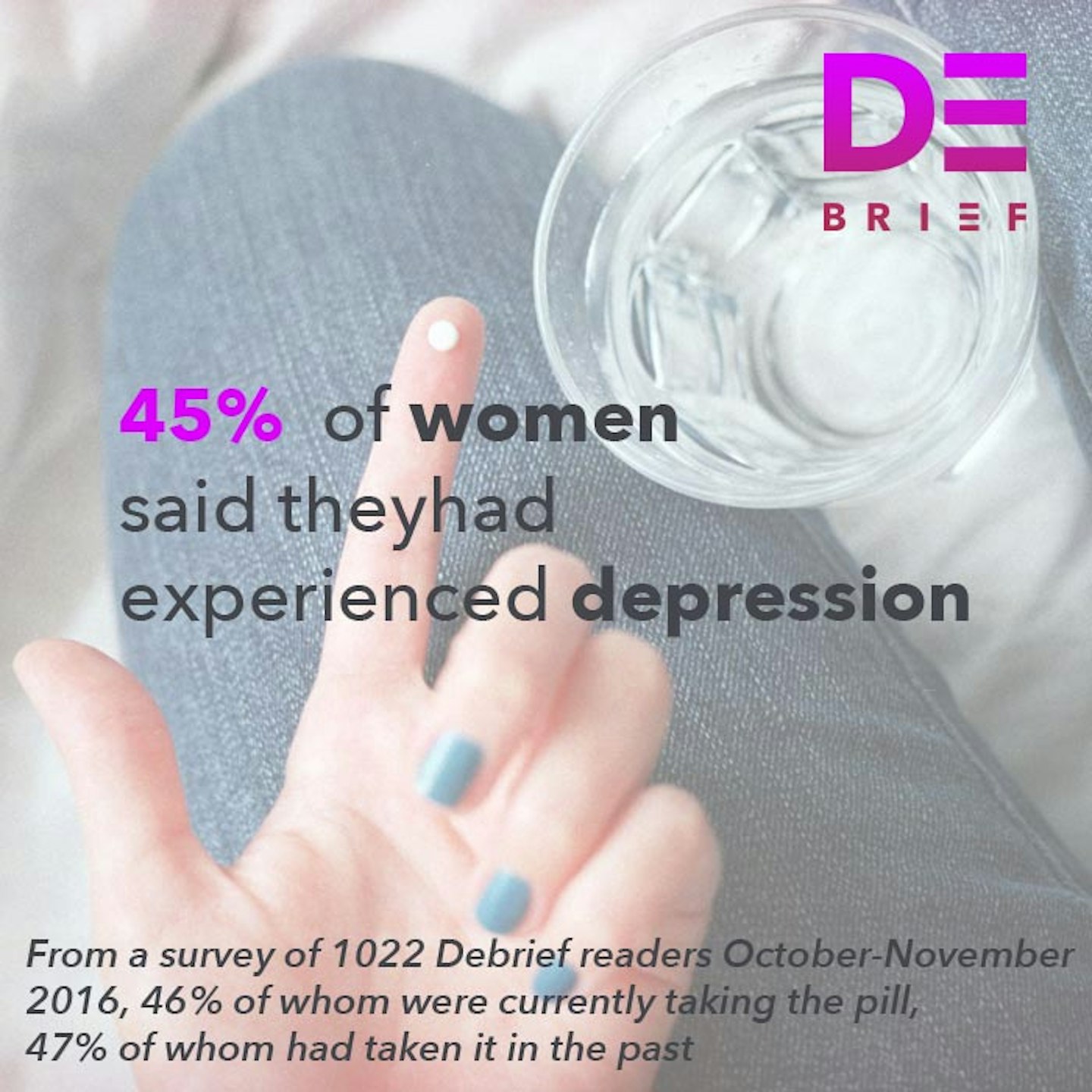In an uncharacteristically fiery – and, dare we say, feminist – column for the Telegraph on Tuesday, Theresa May described Britain’s gender pay gap as a 'burning injustice' which must be tackled head-on if society is to economically progress.
The Prime Minister also admitted that the gender pay gap figures released by big companies so far make for 'uncomfortable reading', but that the measures are necessary if women are to conquer workplace equality in the same way they did the struggle for suffrage 100 years ago.
Well, the deadline for any companies with more than 250 employees to disclose the average pay gap between male and female workers is at midnight, and we’re eager to see the household names we should celebrate - and the ones who, frankly, should hang their heads in shame.
Debrief Mad About The Pill Stats
 1 of 9
1 of 9Debrief Mad About The Pill Stats
 2 of 9
2 of 9Debrief Mad About The Pill Stats
 3 of 9
3 of 9Debrief Mad About The Pill Stats
 4 of 9
4 of 9Debrief Mad About The Pill Stats
 5 of 9
5 of 9Debrief Mad About The Pill Stats
 6 of 9
6 of 9Debrief Mad About The Pill Stats
 7 of 9
7 of 9Debrief Mad About The Pill Stats
 8 of 9
8 of 9Debrief Mad About The Pill Stats
 9 of 9
9 of 9Debrief Mad About The Pill Stats
So what should you do if you find out your boss is paying your male colleagues more than you?
Here’s our quick-fire guide.
How do I find out what my company’s gender pay gap figures are?
If you work for a large company, you can type any name into the government’s special new gender pay gap website to see the difference in pay between men and women.
What data shows the real red flags in gender pay?
There will be means and medians aplenty (the average and middle value of a set of numbers), but don’t get too bogged down in the terminology. The main figures that will really give your company’s game away will be the disparity of women in top positions compared to men, and women in lower earning roles compared to men.
Look too for the disclosures on bonuses. How many women are being rewarded with extra cash compared to men? You are well within your rights to question your company on why inequalities at the top and bottom of the pay scale exist – and ask them what steps they are putting in place to level the playing field.
What can I do to challenge a large pay gap?
According to Sam Smethers, the Chief Executive of the Fawcett Society, the first thing we can all do is to break the age-old office taboo and start a conversation about what we are earning with our male and female colleagues.
‘Gender pay gap reporting is a game changer in terms of workplace culture and practices,’ she said in a statement today. ‘It forces employers to look at themselves and understand their organisations and it prompts employees to ask some hard questions.
‘But even better than that, finally women are realising that they have a right to talk about pay and they cannot be silenced. By finding out what their colleagues earn they are then in a position to challenge any pay inequality. It is much more common than people realise.
‘We are calling on women everywhere today to take that first step and simply have the conversation about pay.’
How do I approach my boss about the subject?
It is a perfectly reasonable request to ask your manager for a meeting about your company’s gender pay gap. Ask too for them to explain the report and action plan the company is following to narrow the pay gap.
If you need more advice on how to do this, and what rights you as employees have to hold your company to account for the gender pay gap, join a union.
Frances O'Grady, the general secretary for TUC, tells the Debrief: 'If you’ve discovered that your company has a large gender pay gap, your first step should be to join a union. They’ll be able to offer support and advice on how to raise the issue in your workplace.'
If your company doesn’t recognise a union, join one related to your profession anyway, as they can still advise you. There's a handy union-finder tool from TUC to help you, too.
I'm worried about being singled out if I approach the issue with management by myself. What should I do?
Another good place to turn to would be your company’s women’s network.
'You’re much more likely to achieve change by working together,' O'Grady continues. 'So rather than trying to tackle the problem alone, get together with some co-workers and make a plan for how to approach management.'
What if I don’t have a women’s network?
Start your own! It’s as easy as setting up an email chain and organising a meeting with like-minded female employees across your company. There is strength – and support - in numbers, so if you’re worried about tackling these issues alone, gather your troops and do it together.
How can I hold my company accountable for the promises it has made to reduce its gender pay gap?
How else can I make my dissatisfaction with my company’s gender pay gap known?
Share your experiences of your workplace gender pay gap and how you get on via social media using the hashtag #GenderPayGap. There’s nothing like a little publicity to turn the heat on your bosses after all!
What if my company has missed the deadline completely?
They will receive a gentle nudge from the Equality and Human Rights Commission (EHRC) at first, followed by a slightly more sternly worded one if the company you work for still hasn’t complied. Ultimately, the company could incur a serious penalty, as they will be breaking the law.
‘We will first carry out an investigation to confirm whether you are breaching the regulations,’ the EHRC website reads. ‘If you are, we will seek a court order requiring you to remedy the breach. Failing to comply with the court order is an offence, punishable with an unlimited fine if you are convicted.
‘Details of any employer that we investigate will be made publicly available on our website.’
Which is just embarrassing, really, isn’t it? Feel free to copy and paste that in an email to HQ as a not-so-subtle reminder if needed.
This article originally appeared on The Debrief.
